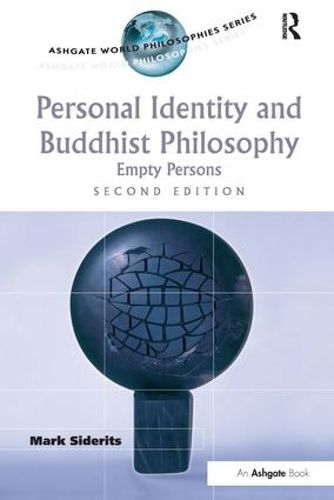Readings Newsletter
Become a Readings Member to make your shopping experience even easier.
Sign in or sign up for free!
You’re not far away from qualifying for FREE standard shipping within Australia
You’ve qualified for FREE standard shipping within Australia
The cart is loading…






Since the publication of Mark Siderits’ important book in 2003, much has changed in the field of Buddhist philosophy. There has been unprecedented growth in analytic metaphysics, and a considerable amount of new work on Indian theories of the self and personal identity has emerged. Fully revised and updated, and drawing on these changes as well as on developments in the author’s own thinking, Personal Identity and Buddhist Philosophy, second edition explores the conversation between Buddhist and Western Philosophy showing how concepts and tools drawn from one philosophical tradition can help solve problems arising in another. Siderits discusses afresh areas involved in the philosophical investigation of persons, including vagueness and its implications for personal identity, recent attempts by scholars of Buddhist philosophy to defend the attribution of an emergentist account of personhood to at least some Buddhists, and whether a distinctively Buddhist antirealism can avoid problems that beset other forms of ontological anti-foundationalism.
$9.00 standard shipping within Australia
FREE standard shipping within Australia for orders over $100.00
Express & International shipping calculated at checkout
Since the publication of Mark Siderits’ important book in 2003, much has changed in the field of Buddhist philosophy. There has been unprecedented growth in analytic metaphysics, and a considerable amount of new work on Indian theories of the self and personal identity has emerged. Fully revised and updated, and drawing on these changes as well as on developments in the author’s own thinking, Personal Identity and Buddhist Philosophy, second edition explores the conversation between Buddhist and Western Philosophy showing how concepts and tools drawn from one philosophical tradition can help solve problems arising in another. Siderits discusses afresh areas involved in the philosophical investigation of persons, including vagueness and its implications for personal identity, recent attempts by scholars of Buddhist philosophy to defend the attribution of an emergentist account of personhood to at least some Buddhists, and whether a distinctively Buddhist antirealism can avoid problems that beset other forms of ontological anti-foundationalism.